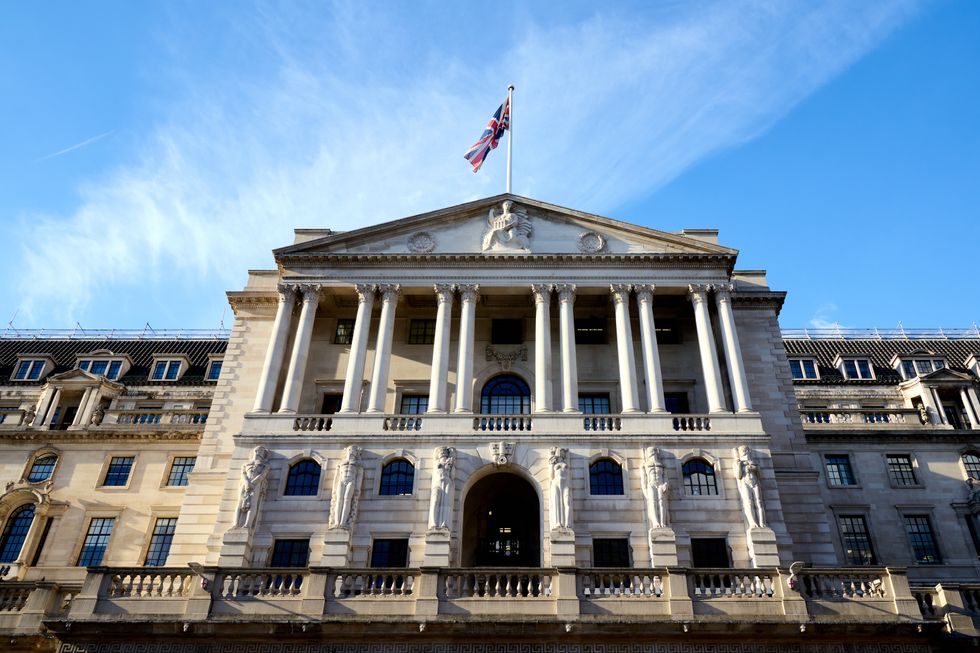Bank of England warns of a 'material risk' to financial stability as it makes a fresh emergency move to calm markets
The Bank of England has said it will try to buy more government bonds to try and stabilise market conditions.
Don't Miss
Most Read
The Bank of England has said it will further bolster its emergency bond-buying plan after warning the ongoing rout in the gilts market poses a 'material risk to UK financial stability'.
The Central Bank said it will now widen the scope of its UK government bond-buying programme, which was launched in the wake of the mini-budget market turmoil, to include purchases of index-linked UK government bonds amid concerns over another 'fire sale' of gilts.
The Bank of England has made a fresh emergency move
John Walton
It comes after the sell-off in government bonds – also known as gilts – resumed on Monday as investor concerns failed to subside despite action by the Bank of England to double its daily bond-buying limit and Chancellor Kwasi Kwarteng’s move to bring forward his new fiscal plan and independent economic forecasts to October 31.
Long-dated gilt prices tumbled, which sent yields on 30-year bonds soaring to 4.7% on Monday, their highest level since the Bank of England was forced to step in last month to avoid a mini financial market crisis.
The pound also fell to 1.10 US dollars as the two-pronged attack by the Bank and Chancellor did little to soothe market worries.
The Bank said: “The beginning of this week has seen a further significant repricing of UK government debt, particularly index-linked gilts.
“Dysfunction in this market, and the prospect of self-reinforcing ‘fire sale’ dynamics pose a material risk to UK financial stability.”
It added that its latest efforts will “act as a further backstop to restore orderly market conditions”.
Threadneedle Street intervened with emergency action on September 28 when the mini-budget market chaos caused the pound to tumble and yields on gilts to soar, which left some pension funds across the industry close to collapse.
The market turmoil had forced pension funds to sell gilts to head off worries over their solvency, but this was threatening to see them suffer severe losses and was creating a downward spiral in gilt prices as more were offloaded.
Kwasi Kwarteng will bring forward his plan to balance the government's finances
Stefan Rousseau
Investment banks made calls on so-called liability driven investment (LDI) funds, which in turn called on pension funds, forcing them into a fire sale of gilts, driving prices still lower and yields higher.
The Bank laid bare the scale of the woes last week when it said the scheme helped the UK narrowly avoid a market meltdown caused by concerns over the Chancellor’s tax cut plans.
But gilt yields started to surge once more due to ongoing fears over the Government’s economic policies and worries that the October 14 deadline set by the Bank for its bond-buying scheme could see a return to pension fund woes.
The Bank ramped up its emergency action on Monday to avoid a cliff-edge when the programme draws to a close on Friday.
It doubled the daily limit on its gilt-buying programme to £10 billion as part of measures to ensure an 'orderly end' to the plan in its final week.
The latest efforts on Tuesday to broaden the bond purchases will further help by 'temporarily absorbing selling of index-linked gilts', according to the Bank.
It added: “The Bank continues to monitor developments in financial markets very closely in light of the significant asset repricing of recent weeks.
“It has also been working with the UK authorities to address risks to the resilience of liability driven investment (LDI) funds arising from volatility in the long-dated government bond (gilt) market.”













